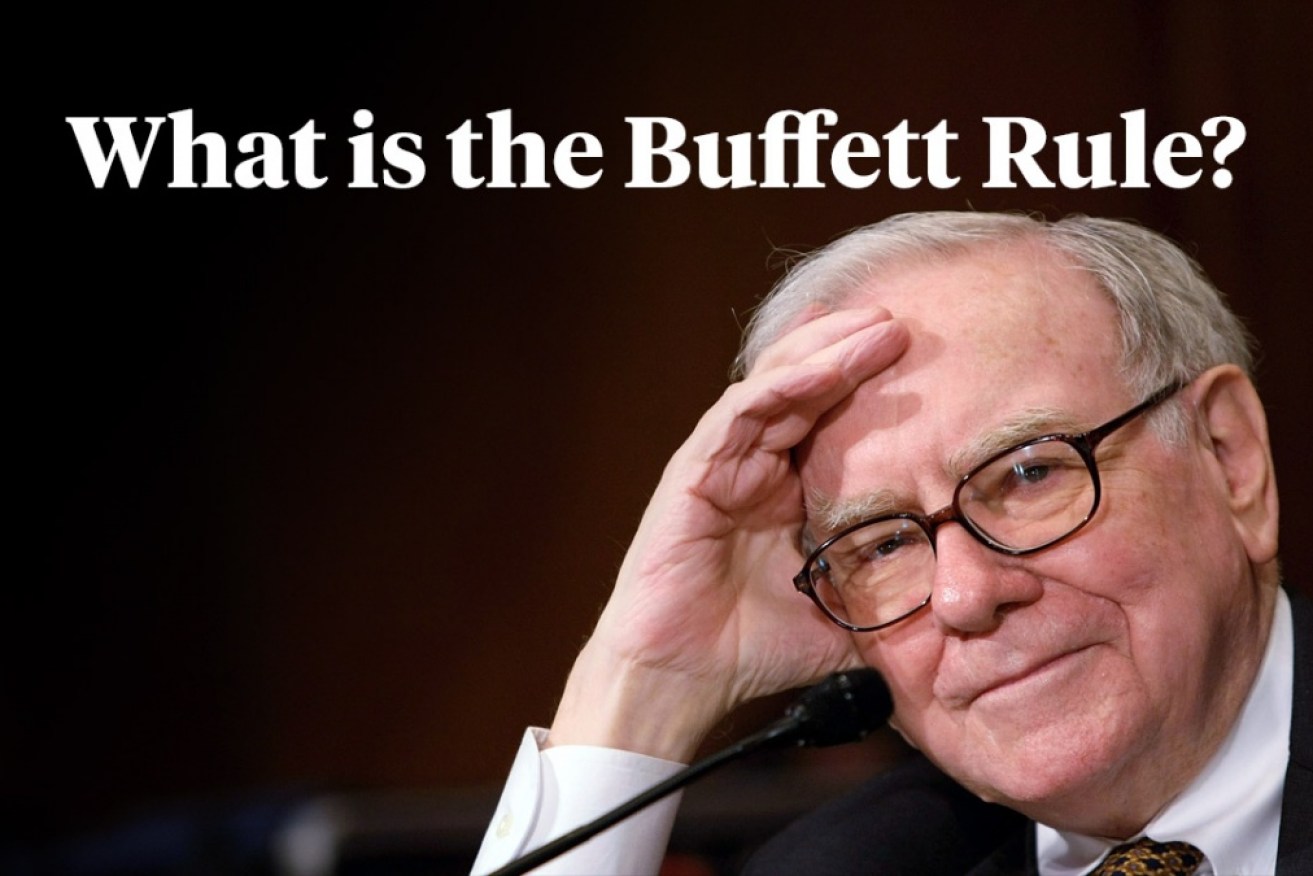Bad news for those ‘too rich’ to pay tax


Labor's debating a tax on the richest third of one per cent of households.
The debate within the Labor Party over a ‘Buffett rule’ tax on the wealthy has brought predictable cries of ‘class warfare’ from some.
But as the plan’s eponymous billionaire investor, Warren Buffett, said a few years back: “Class warfare has been going on for the last 20 years, and my class has won. We’re the ones that have gotten our tax rates reduced dramatically.”
The problem, as the world’s third-richest man saw it, was that the very rich have a lot more money to spend on setting up elaborate tax avoidance schemes – paying top accountants and lawyers to juggle family trusts, shell companies, margin loans, offshore bank accounts and the like on their behalf.
As the Australia Institute’s Richard Denniss points out, if it cost $800,000 in fees and professional services to set up a tax structure that allowed you to avoid a one-off tax hit of $900,000, you’d still have a $100,000 incentive to do it.
But if your tax bill is $10,000, those more elaborate schemes are out of reach.
Left ahead
The left faction of the ALP has floated the idea of changing tax law so that anyone earning over $300,000 a year pays a minimum of 35 per cent tax – a rejigged version of a similar plan that was blocked by Republicans in the US Senate in 2012.
It’s not likely to get through Parliament even if Labor wins the next election, but the debate itself may claw back some votes from the likes of Pauline Hanson, whose One Nation party is following the global trend of railing against ‘elites’ of all kinds.
The plan has been inspired by a discussion paper published by The Australia Institute last year that estimated $2.5 billion could be returned to the federal budget each year if the $300,000 threshold were used.
It would affect about 30,000 households – just over a third of one per cent – which is why it works so well politically. Most people would not be affected.
Is there a better way?
The idea of getting Australia’s richest 30,000 households to cough up an extra $2.5 billion might have wide appeal, but it also looks like a band-aid approach when wholesale reform of the tax system would be better.
For instance, top-end tax avoidance might be annoying, but larger sums of money are dodged through the current negative gearing and capital gains tax discount rules – about $7 billion a year.
The million or so property investors who take advantage of those laws are skewed toward the wealthy end of town too – the Grattan Institute estimates that half of negative gearing tax breaks go to households in the top 20 per cent of income earners.

Pauline Hanson’s One Nation is benefiting from a global movement against ‘elites’.
And there is another tax reform that would have the wealthy contributing billions more to the budget – but one that both sides of politics have shied away from: GST reform.
Raising the GST from 10 per cent to, say, 15 per cent, would raise the most money from those who spend the most – the wealthy.
While that suggestion is routinely shot down as ‘regressive’, a few tweaks to the family tax benefit system, pensions, disability pensions and low-income tax rates could make such a move quite progressive.
But that’s where the worlds of politics and sound policy collide. A GST increase, though widely accepted by economists as one of the least economy-distorting ways to boost revenue, just won’t fly.
Which pushes the debate back onto measures such as the Buffett rule.
And while it may not look likely to make it into law from this point in time, anything seems to be possible in the Trump-inspired age of populism.
It might end up being a case of ‘if it feels good, do it’.
To read more columns by Rob Burgess click here.








